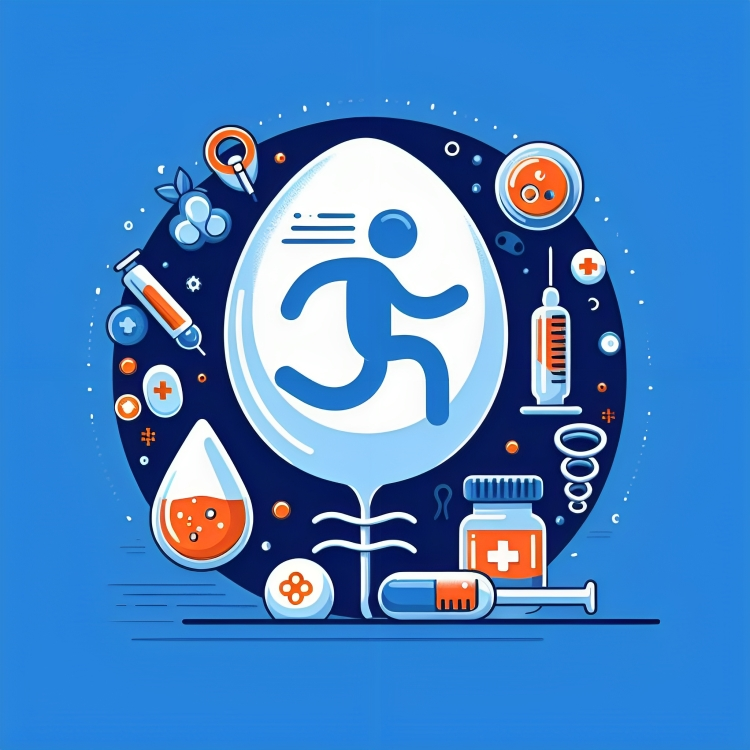What Fertility Treatments Are There?

What Fertility Treatments Are There?
Key Takeaways
|
Aspect |
Details |
|
Common Treatments |
Intrauterine insemination (IUI) and in vitro fertilization (IVF) |
|
Fertility Drugs |
Clomiphene, Gonadotropins |
|
Surgical Options |
Addressing fallopian tube blockages, fibroids, endometriosis, and PCOS |
|
Advanced Techniques |
Intracytoplasmic sperm injection (ICSI), Gamete intrafallopian transfer (GIFT), Zygote intrafallopian transfer (ZIFT) |
|
Donor Assistance |
Donor eggs, embryos, and gestational surrogacy |
|
Cost Considerations |
Varies widely depending on the treatment type and duration |
|
Success Rates |
Dependent on treatment type, patient age, and specific fertility issues |
Fertility challenges can be a significant hurdle for many individuals and couples aspiring to start a family. Understanding the array of fertility treatments available can provide insight and guidance for those navigating this complex journey.
This article delves into the most common and effective fertility treatments, offering a clear understanding of each method, its success rates, and other vital aspects to consider.
Understanding Fertility Treatments:
1. Fertility Drugs:
Fertility drugs like Clomiphene and Gonadotropins play a pivotal role in regulating reproductive hormones and triggering egg release. These drugs are often the first line of treatment due to their relatively low cost and non-invasive nature.
However, they come with potential side effects such as mood swings, pelvic pain, and increased chances of multiple pregnancies.
2. Surgical Procedures:
Surgical interventions can address a variety of physical impediments to fertility. Procedures like laparoscopy and laparotomy are employed to treat conditions like blocked fallopian tubes, fibroids, endometriosis, and PCOS.
3. Intrauterine Insemination (IUI):
IUI involves directly inserting concentrated sperm into the uterus. This method is often combined with fertility drugs and can increase the chances of multiple pregnancies and ovarian hyperstimulation syndrome (OHSS).
Navigating the Complexities of Fertility: A Deeper Dive:
Fertility treatments, while providing hope, also present a range of considerations for those embarking on this path. It's important to delve deeper into the nuances of these treatments to fully understand their implications and opportunities.
Tailoring Fertility Solutions:
Each individual’s fertility journey is unique, making personalized treatment plans essential. Factors such as age, underlying health conditions, and the specific causes of infertility play a crucial role in determining the most effective treatment approach.
|
Component |
Description |
Impact on Fertility |
|
Holistic Health Evaluation |
Assessing overall health, including diet, lifestyle, and stress levels. |
Can improve fertility by optimizing physical and emotional well-being. |
|
Complementary Therapies |
Utilizing therapies like acupuncture, yoga, and meditation alongside conventional treatments. |
May not cure infertility directly but can improve overall health and reduce stress, indirectly enhancing fertility. |
|
Technology and Fertility |
Advancements in fertility technologies such as genetic screening and cryopreservation. |
Increases the success rates of treatments like IVF, offering new hope. |
|
The Role of Counseling |
Providing emotional support and coping strategies through counseling and support groups. |
Helps manage the emotional aspects of fertility treatments, including dealing with unsuccessful attempts. |
Enhancing Fertility with Supplements:

Conceivable.com offers a range of supplements that can complement fertility treatments, enhancing their effectiveness and improving overall reproductive health.
1. Conceivable Score and Report:
Understanding your fertility health is crucial. Conceivable's Premium PreNatal provides a personalized analysis of your fertility, helping you identify areas for improvement.
2. Conceivable's Premium Pre-Conception Formula:
Nutrition plays a vital role in fertility. Ubiquinone Gold Plus is designed to support reproductive health with essential nutrients.
3. Ubiquinol Gold Plus for Egg, Sperm, and Embryo Support:
Egg and sperm quality are fundamental to successful conception. BioAvail Vitamin E supports this with its advanced formula.
4. Omega-3 for Reproductive Health:
Omega-3 fatty acids are crucial for healthy cell function. Conceivable's Omega-3 supplement enhances reproductive health, benefiting both eggs and sperm.
Advanced Fertility Techniques:
1. IVF:
- A complex procedure where eggs are removed from the ovaries.
- Eggs are fertilized in a lab and then implanted into the uterus.
- Can result in multiple pregnancies.
- Requires the use of fertility drugs, which may have side effects like Ovarian Hyperstimulation Syndrome (OHSS).
2. Intracytoplasmic Sperm Injection (ICSI):
- Often used in conjunction with IVF.
- Involves injecting a single sperm directly into an egg.
- Particularly beneficial for male infertility or prior unsuccessful fertilization attempts.
3. Gamete Intrafallopian Transfer (GIFT) and Zygote Intrafallopian Transfer (ZIFT):
- Similar to IVF, but gametes or zygotes are transferred directly into the fallopian tubes.
- Allows for natural fertilization within the body.
4. Donor Eggs and Embryos:
- Used when an individual's eggs or sperm are not viable.
- Donor eggs, sperm, or embryos are often used in conjunction with IVF techniques.
5. Gestational Surrogacy:
- Involves a gestational carrier carrying the pregnancy to term.
- The gestational carrier relinquishes all parental rights after delivery.
The Financial Aspect:
The cost of fertility treatments can be prohibitive for many. It’s essential to consider financial planning as part of the fertility journey. Some treatments require multiple cycles, which can significantly increase the overall cost.
Exploring insurance coverage, payment plans, and financial assistance programs can provide some relief.
The Future of Fertility Treatments:
The field of fertility is constantly evolving, with research and technology opening up new possibilities.
Innovations like artificial intelligence in predicting the success of IVF cycles or advancements in stem cell research could revolutionize fertility treatments, making them more accessible and effective.
In Conclusion:
Navigating fertility treatments requires a comprehensive understanding of the options, alongside considerations of personal health, emotional well-being, ethical implications, and financial planning.
As technology advances, the prospects for effective treatments improve, offering hope to those on their fertility journey.
